
Find Help
More Items From Ergsy search
-

Will I be in a shared or single cell?
Relevance: 100%
-

What is sickle cell disease?
Relevance: 46%
-

Sickle cell anaemia | NHS
Relevance: 46%
-

Introduction to Sickle cell disease
Relevance: 46%
-

Sickle cell patients share their experiences with the last NHS Chief Executive Amanda Pritchard
Relevance: 45%
-

When do I find out about my cell assignment?
Relevance: 44%
-

How is sickle cell disease inherited?
Relevance: 44%
-

What are the symptoms of sickle cell disease?
Relevance: 44%
-

How is sickle cell disease treated?
Relevance: 44%
-

How is sickle cell disease diagnosed?
Relevance: 44%
-

What are the complications of sickle cell disease?
Relevance: 44%
-
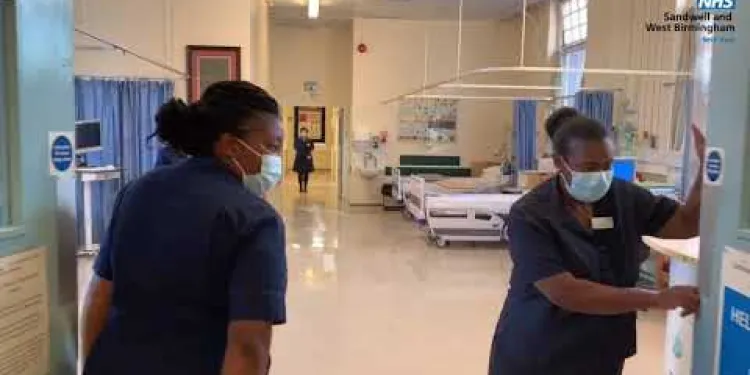
Tour of the Sickle Cell and Thalassaemia Unit at City Hospital | SCaT
Relevance: 38%
-
What role do mitochondria play in the cell?
Relevance: 25%
-

What to expect on the first day in a British prison.
Relevance: 20%
-

Can a company refuse to register a share transfer?
Relevance: 19%
-

Are there fees associated with Stocks & Shares ISAs?
Relevance: 18%
-
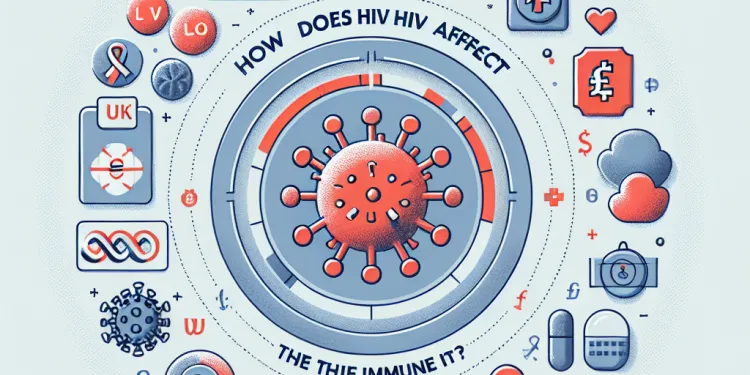
How does HIV affect the immune system?
Relevance: 18%
-

Should I share the results of my self-tests with my eye doctor?
Relevance: 18%
-

How does Stamp Duty affect shared ownership properties?
Relevance: 17%
-

What is the difference between HIV and AIDS?
Relevance: 17%
-

Can a healthcare provider share my medical records with other providers?
Relevance: 17%
-

Judicial Review Sought Over NHS Data Sharing Agreements
Relevance: 17%
-

Is it safe to share drinks at a party?
Relevance: 17%
-

First Time Buyer UK - Own Outright vs Help to Buy vs Shared Ownership
Relevance: 17%
-

What is AIDS?
Relevance: 16%
-

What is cervical screening (smear test)?
Relevance: 15%
-

What types of blood products can be transfused?
Relevance: 15%
-

Why are newborns more prone to jaundice than adults?
Relevance: 15%
-

Leukaemia: What are the signs and symptoms? | NHS
Relevance: 15%
-

What are some common reasons blood transfusions are needed?
Relevance: 15%
-
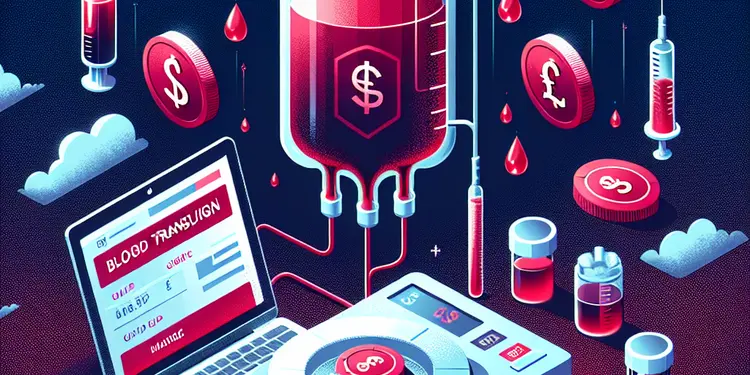
Why might someone need a blood transfusion?
Relevance: 15%
-

What is Mitochondrial disease?
Relevance: 14%
-

What are the long-term effects of sunburn?
Relevance: 14%
-

How does cryotherapy work in treating prostate cancer?
Relevance: 14%
-
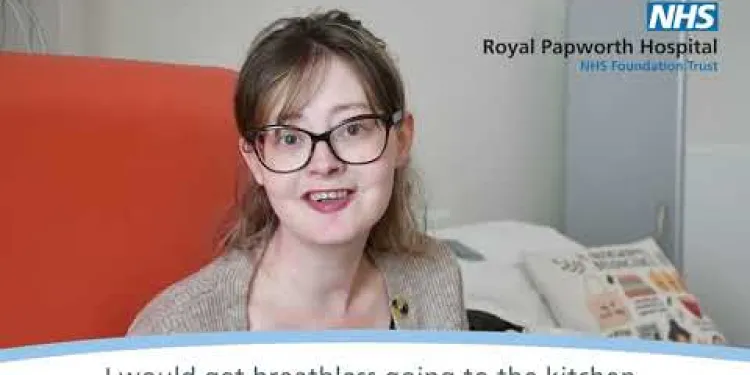
Heart-lung transplant patient shares her story
Relevance: 14%
-

Is there a cure for motor neurone disease?
Relevance: 14%
-

House Prices Soar: First-Time Buyers Share Their Stories
Relevance: 13%
-

The NHS is #StillHereToHelp with cervical screening
Relevance: 13%
-
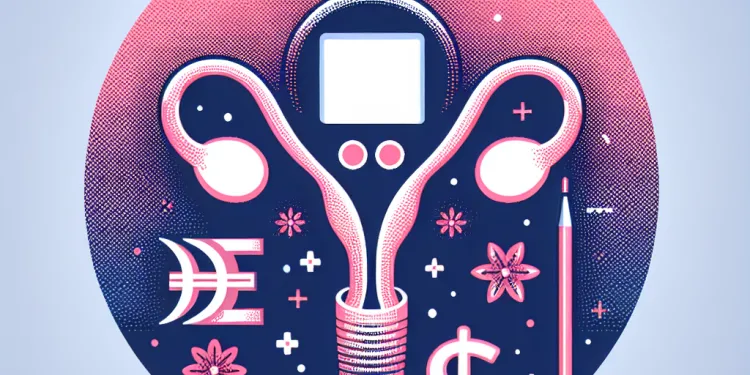
Can a womb lining test detect cancer?
Relevance: 13%
-
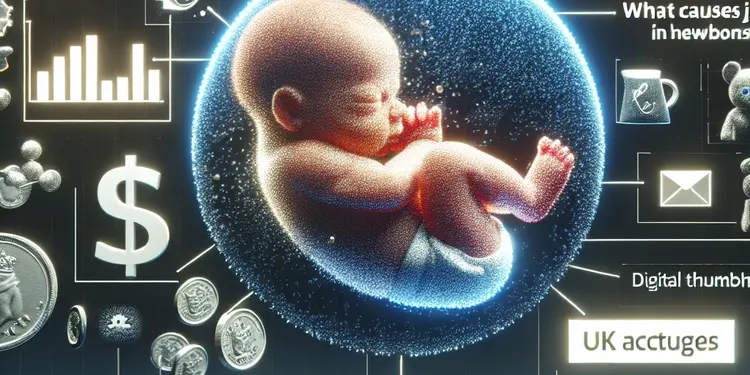
What causes jaundice in newborns?
Relevance: 13%
Introduction
The question of whether an individual will be housed in a shared or single cell is a significant concern for those entering the UK prison system. The decision on cell allocation can depend on a variety of factors, including the individual's personal needs, behavior, and the specific policies of the prison they are entering.
Factors Influencing Cell Allocation
Several factors influence whether a prisoner will be placed in a shared or single cell in UK prisons. Key considerations include the prisoner's security classification, risk assessment, and any specific needs. Those classified as high-risk or requiring protection might find themselves in single cells for safety reasons.
Additionally, medical and psychological needs play an important role. Inmates with mental health issues, disabilities, or specific medical requirements may be placed in single cells to provide them with more personal space and to facilitate better care.
Prison Overcrowding
Overcrowding is a significant issue within the UK prison system and often influences whether a prisoner is placed in a shared or single cell. Many prisons are operating above capacity, leading to a higher likelihood of prisoners being placed in shared accommodations regardless of their preference.
Shared cells are more common in overcrowded facilities as prisons aim to maximize available space. The number of shared cells increases the capacity of a prison but can also lead to challenges such as increased tension among inmates and reduced privacy.
Health and Safety Considerations
The health and safety of prisoners remain a top priority for the UK prison system. While shared cells are common, the authorities conduct thorough risk assessments to ensure compatibility among cellmates. This process is designed to minimize the risk of violence or victimization within shared spaces.
However, in situations where shared cells could pose a risk to the wellbeing of an inmate or their cellmate, prison authorities may opt for single cell accommodation.
Preferences and Requests
Prisoners can express a preference for single cell accommodation, although this is not guaranteed due to the aforementioned factors. Requests are taken into consideration, and prison staff strive to balance these with operational realities such as space availability and security protocols.
Effective communication with prison staff regarding any concerns or specific needs can positively influence the allocation decision. Prisoners are encouraged to discuss their accommodation preferences during the induction process.
Conclusion
Whether an inmate will be in a shared or single cell within the UK prison system depends on multiple factors, including risk assessments, personal needs, and the prison's capacity constraints. While individual requests are considered, they must be weighed against resource limitations and security considerations. Ultimately, the primary goal is to ensure the safety and wellbeing of all individuals within the prison environment.
Introduction
When someone goes to prison in the UK, they might wonder if they will share a cell with someone or have their own. This choice depends on different things, like what the person needs, how they behave, and the rules of the prison they go to.
How Prisons Choose Cells
There are different reasons why a person might get a shared or single cell in UK prisons. Important reasons include the prisoner's security level and safety needs. People who are considered dangerous or who need protection might get their own cell to keep them safe.
Also, if someone has health problems or disabilities, they might need to be alone in a cell. This helps them have enough space and get the care they need.
Too Many Prisoners
Lots of prisons in the UK have too many people. This makes it more likely that a prisoner will have to share a cell. Many prisons put people in shared cells to fit more people in.
Sharing cells lets prisons have more room for inmates, but it can cause problems. There can be more arguments and less privacy in shared cells.
Staying Safe and Healthy
The safety and health of inmates are very important to prisons. Before putting people together in shared cells, prisons check to see if they will get along. This helps stop fights and bullying.
If sharing a cell could be dangerous for someone, prisons might give them their own cell to keep everyone safe.
What Prisoners Want
Prisoners can say if they want a single cell. But they might not always get one because of the reasons we talked about earlier. Prisons listen to these requests but must think about things like space and safety.
Prisoners should talk to the staff if they have concerns or needs. Telling the staff what they want can help decide where they stay.
Conclusion
The decision about whether someone gets a shared or single cell in a UK prison depends on different factors, like safety checks and what the person needs. Although prisoners can ask for a single cell, the prison must also think about room availability and keeping everyone safe. Above all, the goal is to make sure everyone in prison is safe and well taken care of.
Frequently Asked Questions
What factors determine if I will be in a shared or single cell?
Decisions about cell assignments can depend on factors such as the nature of the offense, behavior, prison policies, and available space.
Who decides if I will be in a shared or single cell?
The prison administration or a designated officer typically makes the decision based on certain criteria and policies.
Can I request a single cell?
Requests can often be made, but they are subject to approval and availability, and not all requests may be granted.
Are there specific criteria for being assigned to a single cell?
Criteria may include medical needs, vulnerability, safety concerns, or behavioral issues.
Do shared cells affect my privileges?
Shared cell assignments typically do not affect privileges directly, but sharing a space may impact daily routines.
What are the benefits of having a single cell?
Single cells may offer more privacy and reduced stress from conflicts with cellmates, but this can vary.
Is it safer to be in a single cell?
Safety can depend on individual circumstances; a single cell may be safer for some, while others might benefit from a shared environment.
Can medical issues influence cell assignments?
Yes, medical conditions can influence whether an individual is placed in a shared or single cell.
What happens if my situation changes?
If your situation changes, such as health or behavior, you may be reassessed for cell assignment.
Are single cells more common in certain types of facilities?
Single cells may be more common in facilities with higher security levels or specific programs.
Is there a difference between solitary confinement and a single cell?
Yes, solitary confinement is typically a disciplinary measure, while a single cell is regular housing.
How does inmate behavior impact cell assignments?
Good behavior may increase eligibility for a single cell, whereas misbehavior might lead to shared housing.
What role does overcrowding play in cell assignments?
Overcrowding can limit the availability of single cells, leading to more shared cell assignments.
Are there specific offenses that require single cells?
Certain offenses, especially those that pose safety risks, might necessitate single cells for security.
Can I switch from a shared cell to a single cell?
Switching is possible but depends on availability and approval based on specific circumstances or improvements in behavior.
How does mental health affect cell placement?
Mental health issues can affect placement decisions, often leading to single cell accommodation for special care.
What should I do if I feel unsafe in a shared cell?
Report your concerns to prison staff immediately so they can assess the situation and make necessary changes.
What is the average size difference between a shared and a single cell?
Shared cells are usually larger to accommodate more people, whereas single cells are smaller but only house one person.
How does time in a facility influence cell assignments?
Longer-term inmates might be considered for single cells as space opens up or behavior merits reassignment.
Do all facilities offer a choice between a shared or a single cell?
Not all facilities have the infrastructure or policy flexibility to consistently offer both options.
What decides if I share a cell or have my own?
Here is how it works:
- The prison looks at safety and health.
- They see how you get along with others.
- They check how much space is in the prison.
Helpful tips:
- Ask questions if you don't understand.
- Speak to a support person if you need help.
Choosing which cell a person goes to in prison can depend on several things. It could be what they did wrong, how they act, the rules of the prison, or how much space there is.
Here's a tip to help understand this better: Try using pictures or simple charts to show these different reasons. This can make it easier to remember. You can also ask someone to explain it with different words if it feels too tricky.
Who chooses if I stay in a cell by myself or with someone else?
The people in charge of the prison usually decide. They follow rules to make these choices. A special officer might also help decide.
Can I ask for my own cell?
You can ask for things, but someone needs to say yes first. Not everything you ask for can be given to you.
How do you get a room of your own in prison?
The rules for help might look at things like if someone needs medicine, needs extra protection, needs to be safe, or has trouble with behavior.
Do shared cells change what I can do?
When people share a cell, it usually doesn't change their rights. But having a roommate might change how things work day-to-day.
Why is having just one cell good?
Having just one cell can be simple and easy to manage. Here are some reasons why:
- Easy to Understand: Only one cell means there's less to think about.
- Simple Jobs: One cell can do its jobs without needing help.
- Quick Repairs: If something goes wrong, it’s easy to fix.
Using pictures or videos can help you learn more about cells. Ask a teacher or use apps to see how a cell works.
Staying in a cell by yourself can help you have more privacy. It can also help you feel less upset because you won’t have problems with people you share with. But this might be different for some people.
Is it safer to stay alone in a cell?
Staying alone in a cell means having your own space. You are not with other people. This can be safer because:
- You don't share space with people who may be mean or hurt you.
- You have more quiet and peace.
But staying alone can be hard because:
- You might feel lonely with no one to talk to.
- It might make you feel sad or scared.
Here are some things that may help:
- Have time to talk with family or friends.
- Play games or do puzzles to stay busy.
- Use books or music to feel better.
It is good to have support if you are alone. Ask people like guards for help if you need it.
What is safe can be different for each person. Being alone in a single cell might be safer for some people. Others might feel safer when they are with someone else.
Can health problems change where cells are placed?
Yes, health problems can affect if someone stays in a cell with others or by themselves.
What if things change for me?
Things might change, like moving to a new home or starting a new school. It's okay if this happens.
If things change, you should tell someone who can help. This could be a teacher, a parent, or a friend.
Here are some things you can do:
- Talk to someone you trust about how you feel.
- Make a list of what is changing and what will stay the same.
- Ask questions if you are unsure what to do.
- Use tools like picture charts or planners to help you understand changes.
Remember, it's okay to ask for help if you need it.
If things change, like your health or behavior, someone might check to see if you need a different cell.
Do some places have more single cells?
A single cell is a room for one person. In some big buildings, like jails or hospitals, people might have their own room. Do you think some places have more single rooms than others?
Here is how to think about it:
- Look for places where people need to be alone, like for quiet or safety.
- Ask someone who knows about the place. They can help you understand.
- Check easy-to-read websites for more information.
In places with lots of security, there might be more single rooms.
Is there a difference between being alone in a cell and a single cell?
Do you want to know if being alone in a cell is the same as a cell for one person?
Here is how you can understand it better:
- Solitary confinement: This means being alone in a cell as a punishment. You can't see or talk to other people.
- Single cell: This means having a cell by yourself, but you might still be allowed to see or talk to other people sometimes.
If reading is hard, you can try these tips:
- Read slowly, one sentence at a time.
- Use a finger to point to each word as you read.
- Ask someone to read with you or explain words you don't know.
- Try listening to the words if there is an audio option.
Yes, being alone in a cell as a punishment is called solitary confinement. Being alone in a cell without it being a punishment is called single cell housing.
How does how inmates act change where they live in prison?
Being good can help you get your own room. Being bad might mean you have to share a room.
How does having too many people affect where they sleep in a prison?
When there are too many people, it can be hard to get your own cell. This means more people have to share a cell.
Do some crimes mean a person must have their own jail cell?
Some rules are broken that make things unsafe. When this happens, people might need to be in their own rooms to keep everyone safe.
Can I move from a cell with other people to my own cell?
You can switch, but only if there is space and someone agrees. They will look at why you want to switch and if you have behaved better.
How Does Mental Health Change Where Cells Are In The Body?
Mental health is about how we think and feel. It can change how our body works.
When we feel sad or worried, it can affect our body cells. Cells are tiny parts that make up our body. Feeling good or bad can change where these cells go or how they work.
If you find reading hard, try these tips:
- Read with a friend or family member. They can help explain the words.
- Use a ruler or your finger to follow the words.
Mental health problems can change where a person stays. Sometimes, they may need their own room for extra care and help.
What can I do if I don't feel safe in a shared cell?
If you feel scared or worried in your cell, tell a staff member right away. They are there to help you.
You can also ask to talk to someone about how you feel. It is important to speak up.
Use words to say how you feel. This helps others understand you.
If you want, write down your feelings. This can help you share your concerns.
If you are worried, tell the prison staff right away. They can look into things and make changes if needed.
How big is a shared cell compared to a single cell?
A shared cell is where more than one person stays. A single cell is for one person. This question asks how much bigger or smaller a shared cell is compared to a single cell.
Tip: Use a ruler or measuring tape to help understand the size differences.
Shared cells are bigger because more people stay there. Single cells are smaller and only have one person.
How does staying in a place change where people sleep?
People who stay in jail for a long time might get their own rooms if there is space or if they behave well.
Can you choose to share a cell or have your own room in all places?
Not all places have the right setup or rules to always give both choices.
Useful Links
This website offers general information and is not a substitute for professional advice.
Always seek guidance from qualified professionals.
If you have any medical concerns or need urgent help, contact a healthcare professional or emergency services immediately.
Some of this content was generated with AI assistance. We’ve done our best to keep it accurate, helpful, and human-friendly.
- Ergsy carfully checks the information in the videos we provide here.
- Videos shown by Youtube after a video has completed, have NOT been reviewed by ERGSY.
- To view, click the arrow in centre of video.
- Most of the videos you find here will have subtitles and/or closed captions available.
- You may need to turn these on, and choose your preferred language.
- Go to the video you'd like to watch.
- If closed captions (CC) are available, settings will be visible on the bottom right of the video player.
- To turn on Captions, click settings .
- To turn off Captions, click settings again.
More Items From Ergsy search
-

Will I be in a shared or single cell?
Relevance: 100%
-

What is sickle cell disease?
Relevance: 46%
-

Sickle cell anaemia | NHS
Relevance: 46%
-

Introduction to Sickle cell disease
Relevance: 46%
-

Sickle cell patients share their experiences with the last NHS Chief Executive Amanda Pritchard
Relevance: 45%
-

When do I find out about my cell assignment?
Relevance: 44%
-

How is sickle cell disease inherited?
Relevance: 44%
-

What are the symptoms of sickle cell disease?
Relevance: 44%
-

How is sickle cell disease treated?
Relevance: 44%
-

How is sickle cell disease diagnosed?
Relevance: 44%
-

What are the complications of sickle cell disease?
Relevance: 44%
-

Tour of the Sickle Cell and Thalassaemia Unit at City Hospital | SCaT
Relevance: 38%
-
What role do mitochondria play in the cell?
Relevance: 25%
-

What to expect on the first day in a British prison.
Relevance: 20%
-

Can a company refuse to register a share transfer?
Relevance: 19%
-

Are there fees associated with Stocks & Shares ISAs?
Relevance: 18%
-

How does HIV affect the immune system?
Relevance: 18%
-

Should I share the results of my self-tests with my eye doctor?
Relevance: 18%
-

How does Stamp Duty affect shared ownership properties?
Relevance: 17%
-

What is the difference between HIV and AIDS?
Relevance: 17%
-

Can a healthcare provider share my medical records with other providers?
Relevance: 17%
-

Judicial Review Sought Over NHS Data Sharing Agreements
Relevance: 17%
-

Is it safe to share drinks at a party?
Relevance: 17%
-

First Time Buyer UK - Own Outright vs Help to Buy vs Shared Ownership
Relevance: 17%
-

What is AIDS?
Relevance: 16%
-

What is cervical screening (smear test)?
Relevance: 15%
-

What types of blood products can be transfused?
Relevance: 15%
-

Why are newborns more prone to jaundice than adults?
Relevance: 15%
-

Leukaemia: What are the signs and symptoms? | NHS
Relevance: 15%
-

What are some common reasons blood transfusions are needed?
Relevance: 15%
-

Why might someone need a blood transfusion?
Relevance: 15%
-

What is Mitochondrial disease?
Relevance: 14%
-

What are the long-term effects of sunburn?
Relevance: 14%
-

How does cryotherapy work in treating prostate cancer?
Relevance: 14%
-

Heart-lung transplant patient shares her story
Relevance: 14%
-

Is there a cure for motor neurone disease?
Relevance: 14%
-

House Prices Soar: First-Time Buyers Share Their Stories
Relevance: 13%
-

The NHS is #StillHereToHelp with cervical screening
Relevance: 13%
-

Can a womb lining test detect cancer?
Relevance: 13%
-

What causes jaundice in newborns?
Relevance: 13%


